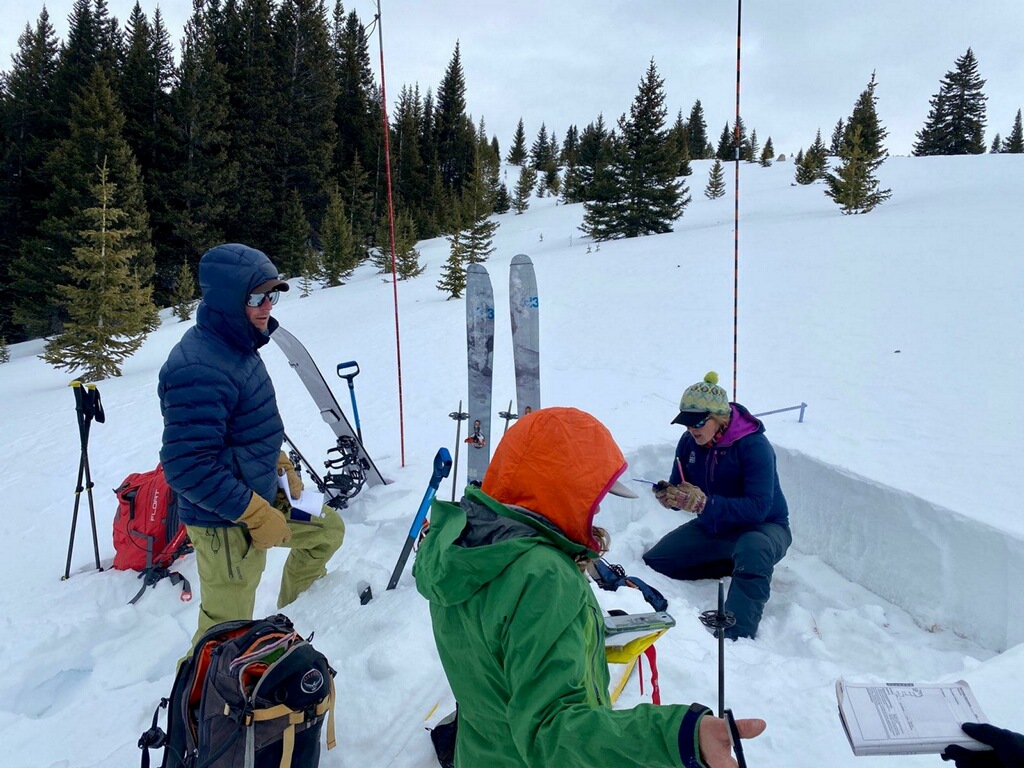It’s a crisp bluebird day. The sun is shining and there are several inches of new powder. Backcountry enthusiasts have flocked to their favorite run and are about to drop in. What they may not realize is the very real danger that lurks beneath the snowpack.
It’s a sad reality that in Colorado, avalanche deaths are an annual occurrence and that they also spiked during the 2020/2021 winter season. According to the Colorado Avalanche Information Center, over the last 10 winters, an average of 27 people died in avalanches each year in the United States, and Colorado experienced the greatest number of those avalanche deaths—nearly twice as much as the second deadliest state, Alaska.
Because of the inherent risks involved with backcountry travel, it’s important to learn how to mitigate those risks, be confident in your decision-making, and ensure everyone gets home at the end of the day. The first step in your backcountry skiing journey is to take an Avalanche safety training course.
Back in the ’70s, avalanche courses were developed for avalanche industry workers and true backcountry aficionados. But now, they’re for anyone who is heading into the backcountry. Some of the skills an avalanche training course should teach include:
- Avalanche formation and release
- How to identify avalanche terrain
- The basics of trip planning
- Optimal use of tools and resources like the avalanche forecasts to mitigate your avalanche risk
- Using appropriate travel techniques in avalanche terrain
- Intro to companion rescue
AIARE (American Institute for Avalanche Rescue and Education) is the leader in avalanche training, and RMOC teaches AIARE certified courses to get you ready to best protect yourself from an avalanche fatality.
Introduction to Backcountry/Avalanche Prep
If this is your first experience with avalanche training, we recommend taking our Avalanche Prep Course where you’ll learn what it takes to begin venturing into the backcountry, including the basics about avalanche hazards, weather observations, and trip planning. You’ll also get an overview of all necessary equipment, including beacon, shovel, and probe.
In this AIARE 1 Course taught by RMOC, you’ll learn how to prepare for and carry out a backcountry trip, basic decision making while in the field, and rescue techniques required to find and dig up a buried person (if an avalanche occurs and someone in your party is caught).
At the end of the AIARE 1 course, you should be able to:
- Develop a plan for travel in avalanche terrain
- Demonstrate the ability to identify avalanche terrain
- Effectively use The AIARE Risk Management Framework to make terrain choices in a group setting
AIARE 2 builds on the introductory avalanche hazard management model introduced in AIARE 1 and adds to it the evaluation of critical hazard assessment factors. You will describe and discuss the weather, snowpack, and avalanche processes and identify how these processes relate to observations and travel within avalanche terrain.
At the end of the AIARE 2 course, you should be able to:
- Differentiate where specific avalanche hazards exist within the landscape and identify avalanche terrain where consequences may be more severe
- Use and interpret weather, snow, and avalanche observations to locate appropriate terrain prior to entering and while in the field
- Demonstrate leadership skills within a small team that includes facilitating small group discussion, promoting appropriate terrain selection, and utilizing simple risk management strategies
- Implement a basic forecasting framework that can be used in conjunction with and in the absence of local supporting avalanche information.
This course is appropriate for both new and experienced recreational backcountry travelers, as well as aspiring avalanche professionals. AIARE recommends that all backcountry travelers keep their skills current by taking an Avalanche Rescue course and receiving a rescue card at least every other year.
This one-day (8-hour) course is intended to be retaken on a regular basis in order to keep abreast of best practices in rescue techniques and gear. New participants will learn companion rescue, and returning students will expand their skills with advanced topics and realistic scenario practice.


 RMOC is an equal opportunity service provider. RMOC operates under special use permits from the San Isabel National Forest. All or part of this operation is conducted on Public Lands under special permit from the U.S. Bureau of Land Management.
RMOC is an equal opportunity service provider. RMOC operates under special use permits from the San Isabel National Forest. All or part of this operation is conducted on Public Lands under special permit from the U.S. Bureau of Land Management.